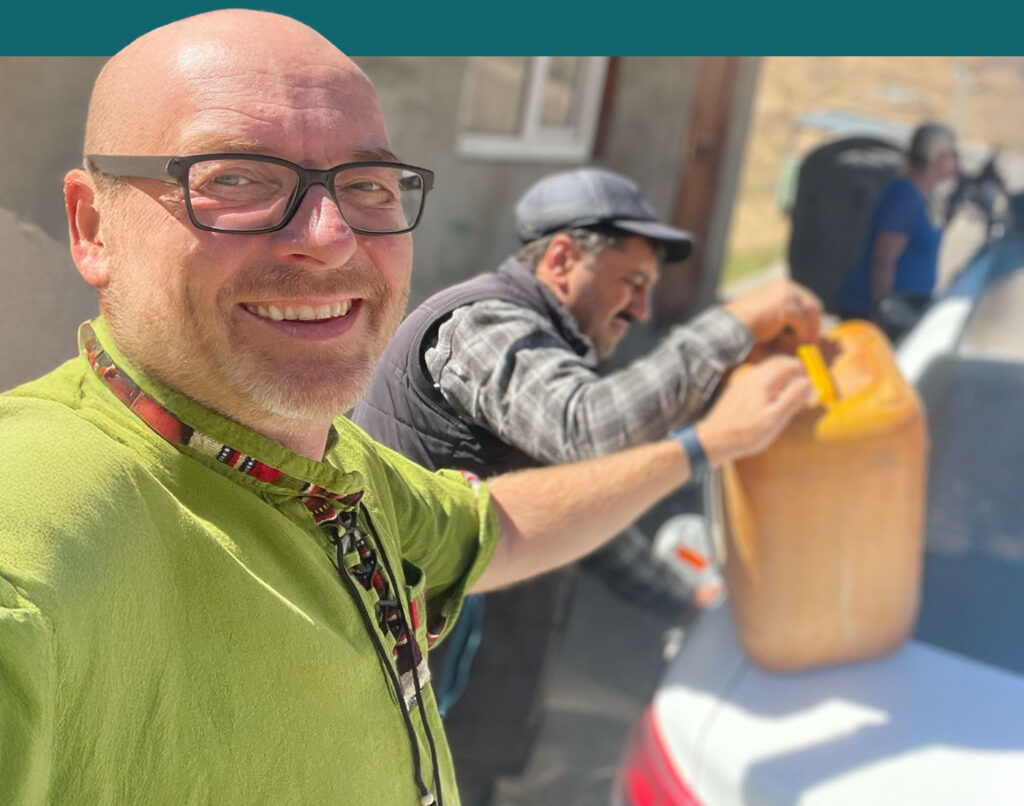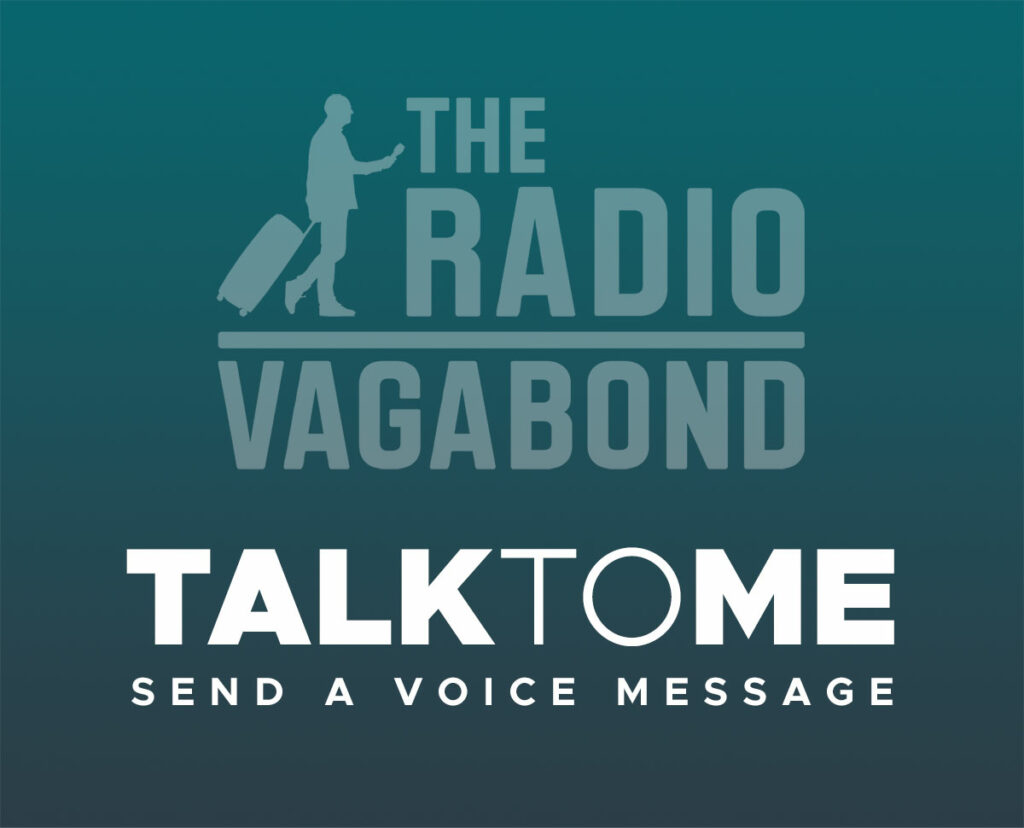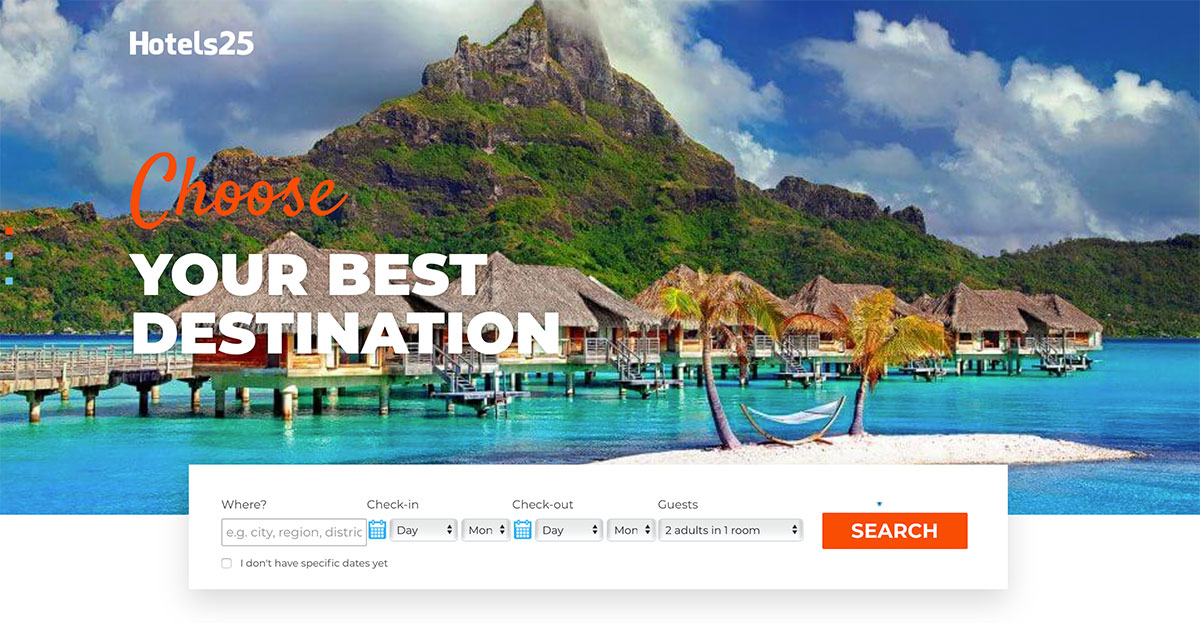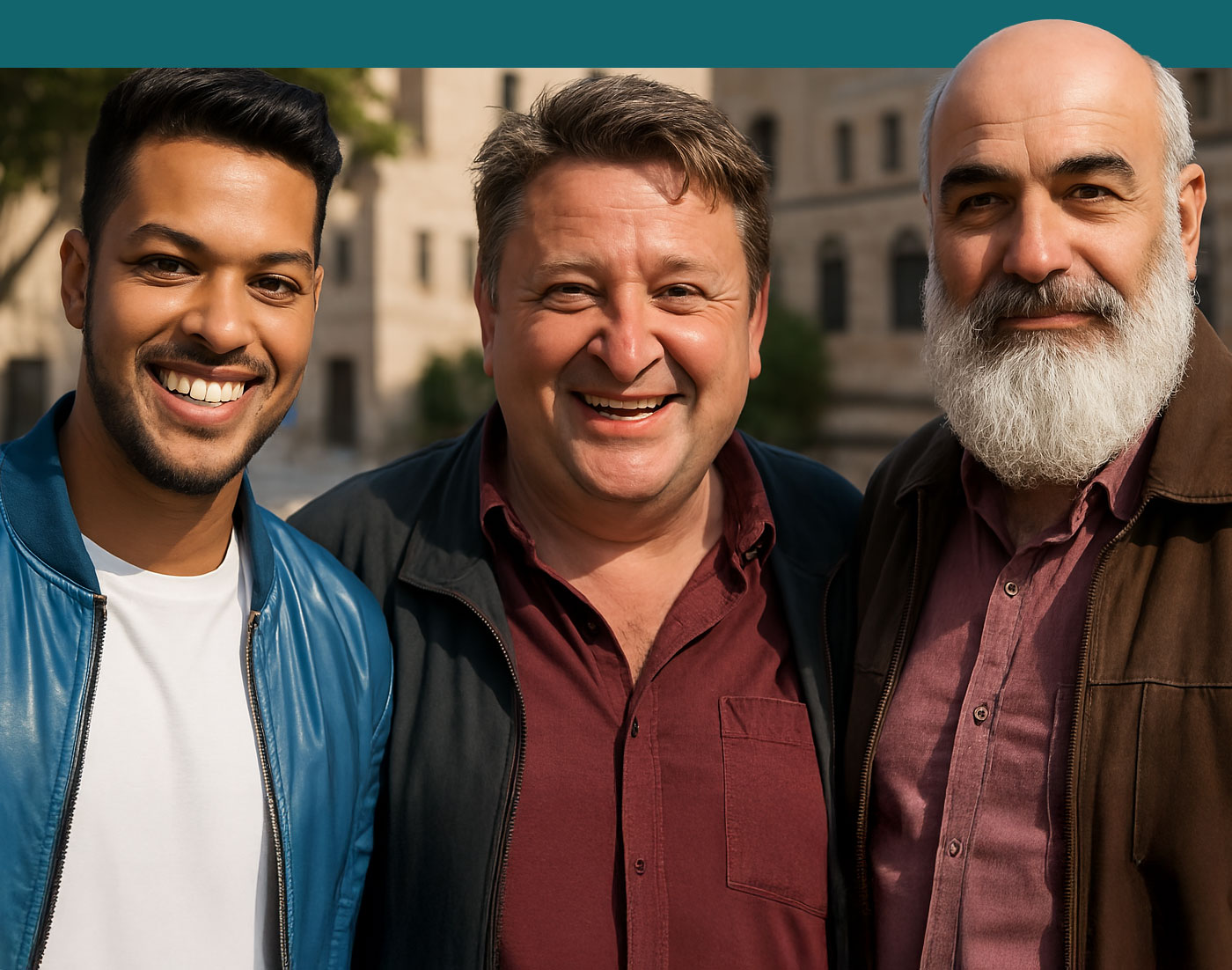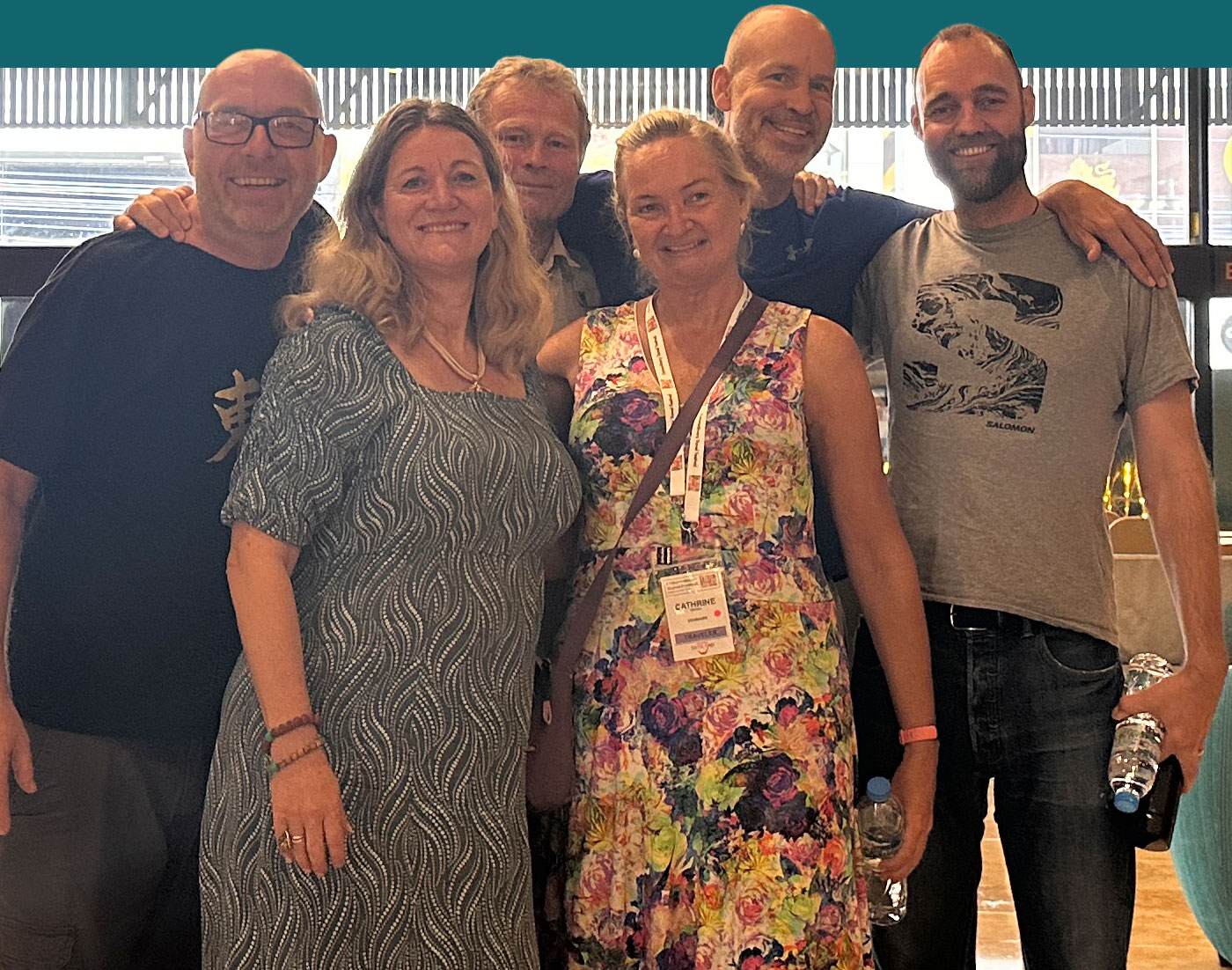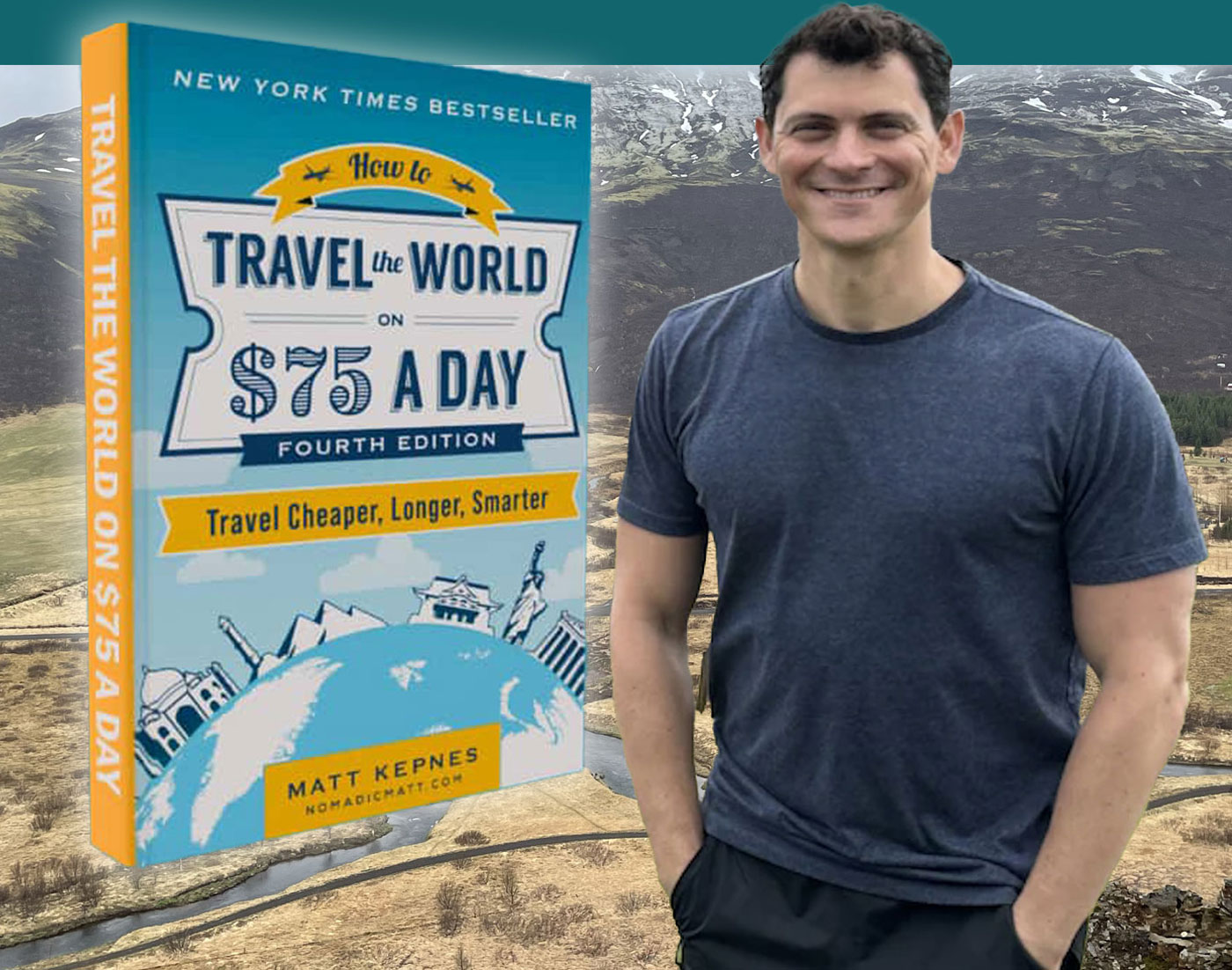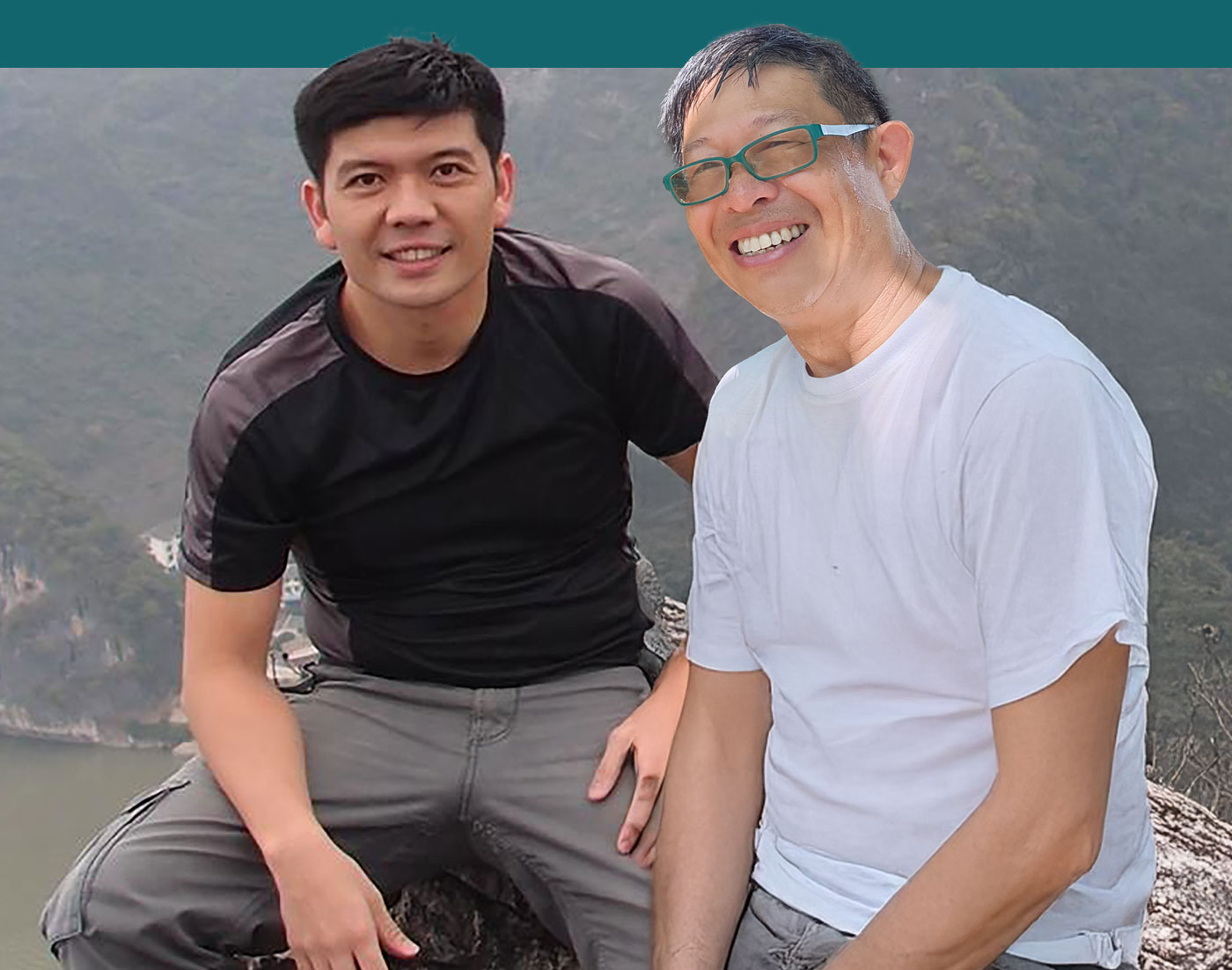In this final episode from Azerbaijan, we’re heading north into the heart of the Caucasus Mountains. From the breathtaking Candy Cane Mountains to a close encounter with the Russian border, this trip is full of surprises. Along the way, we almost run out of gas, experience an unfortunate traffic accident, and even have to make a hasty exit from the country to avoid trouble with the police.
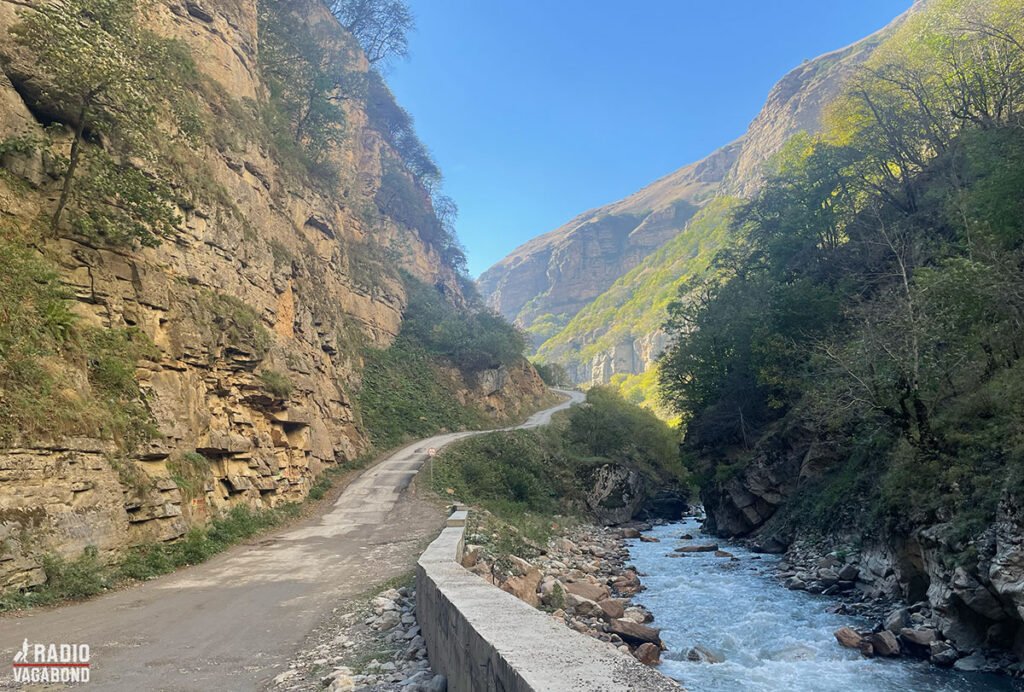
Heading to the Caucasus Mountains
Our journey begins with a drive northeast, venturing into the stunning Caucasus mountains. Along the way, we make a quick stop at the Candy Cane Mountains, so named because of their beautiful, stripey, colourful hills that seem straight out of a candy factory.
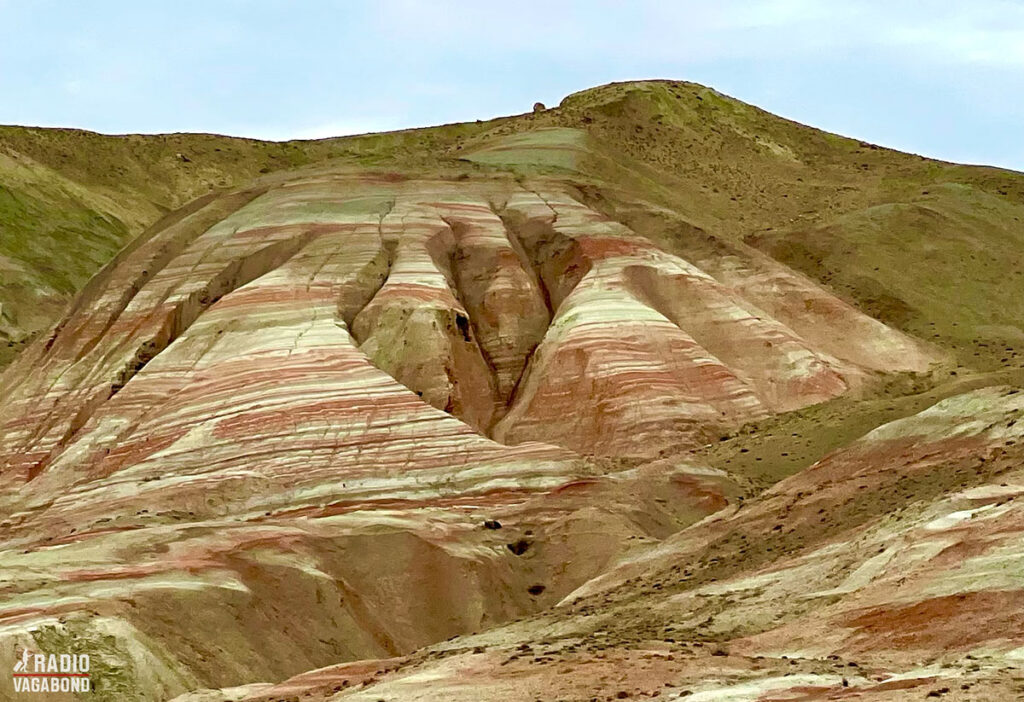
The nickname was coined by British travel writer Mark Elliott, and it’s easy to see why – these vibrant hills belong in Willy Wonka’s backyard. Their unique colors are caused by groundwater mixing with the iron in the rocks, turning them into nature’s candy stripes.
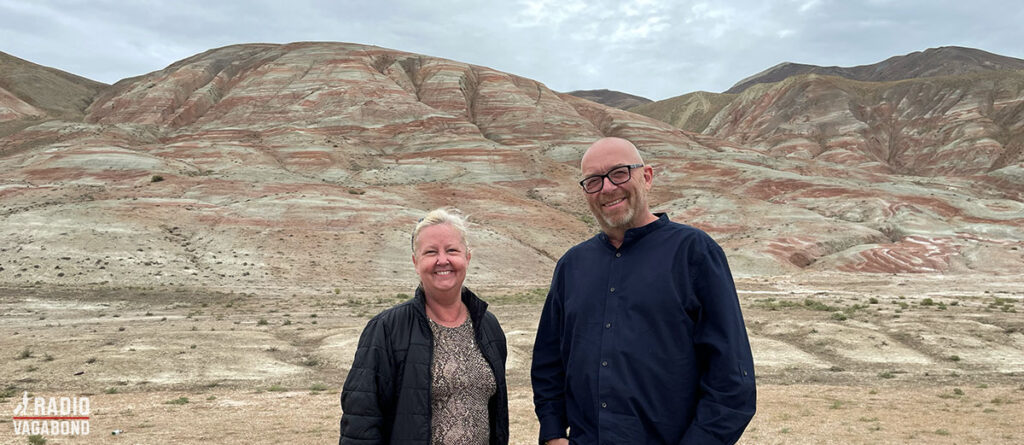
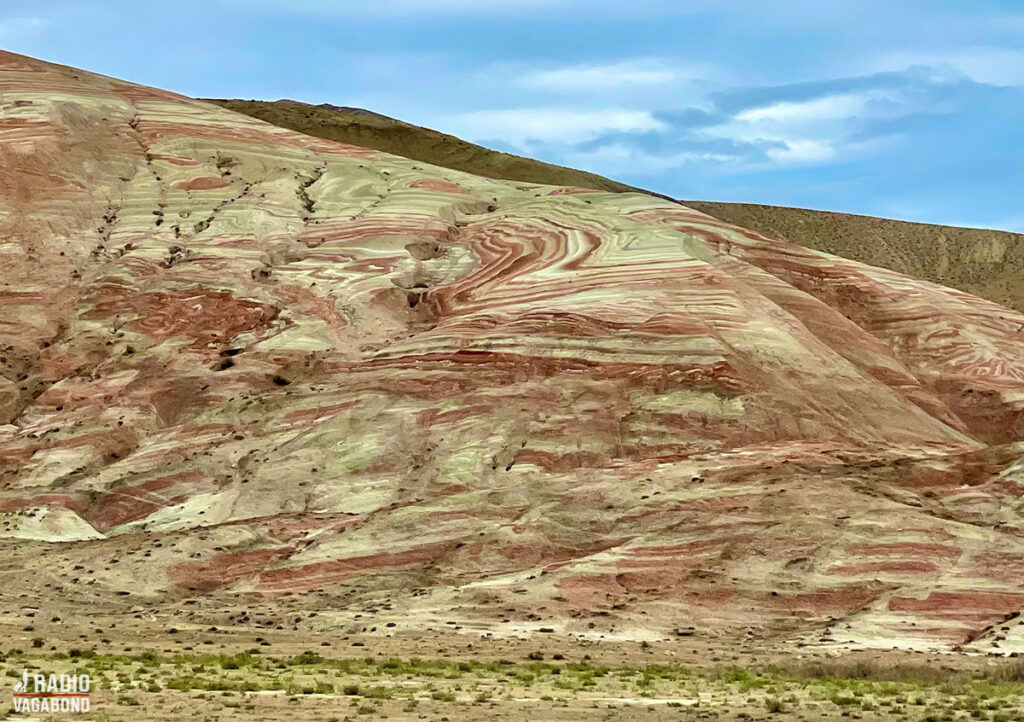
I’ve grown to like Azerbaijan by now. So, I’m thinking if this could be the next Digital Nomad hotspot. So, let’s look at the details for the capital, Baku.
Digital Nomad Check
Cost of Living
Baku offers an affordable cost of living for digital nomads. You can get by for around $600 to $1,000 per month(a bit less in Euros) for accommodation, food, transportation, and other daily expenses. Rent for a one-bedroom apartment can range between $300 and $500 per month, depending on the location. Meals at local restaurants are also budget-friendly, costing around $3 to $5 per meal.
Internet Speed
The average internet speed in Baku might not be the fastest compared to other digital nomad hotspots, but it’s generally stable enough for standard remote work. If you require faster speeds, you can find co-working spaces and specific accommodations with better connections.
Quality of Life
Baku has a nice mix of modern life and history. There are many cafes, interesting buildings, and a lovely seaside promenade. Public transport is good, and the city feels safe, but note that the air quality can sometimes be a problem because of nearby industries.
English Speaking Level
While Azerbaijani is the official language, you can get by using English in tourist areas, cafes, and hotels. Outside of major cities like Baku, English speakers can be harder to find, so knowing a few words in Azerbaijani or Russian can be helpful.
Overall Score
According to Nomadlist.com, Baku is a great choice for digital nomads looking for an affordable city with a unique cultural mix. It offers a low cost of living, decent internet, and plenty to explore, though some areas like internet speed and nightlife may fall short of what nomads are used to in other destinations.
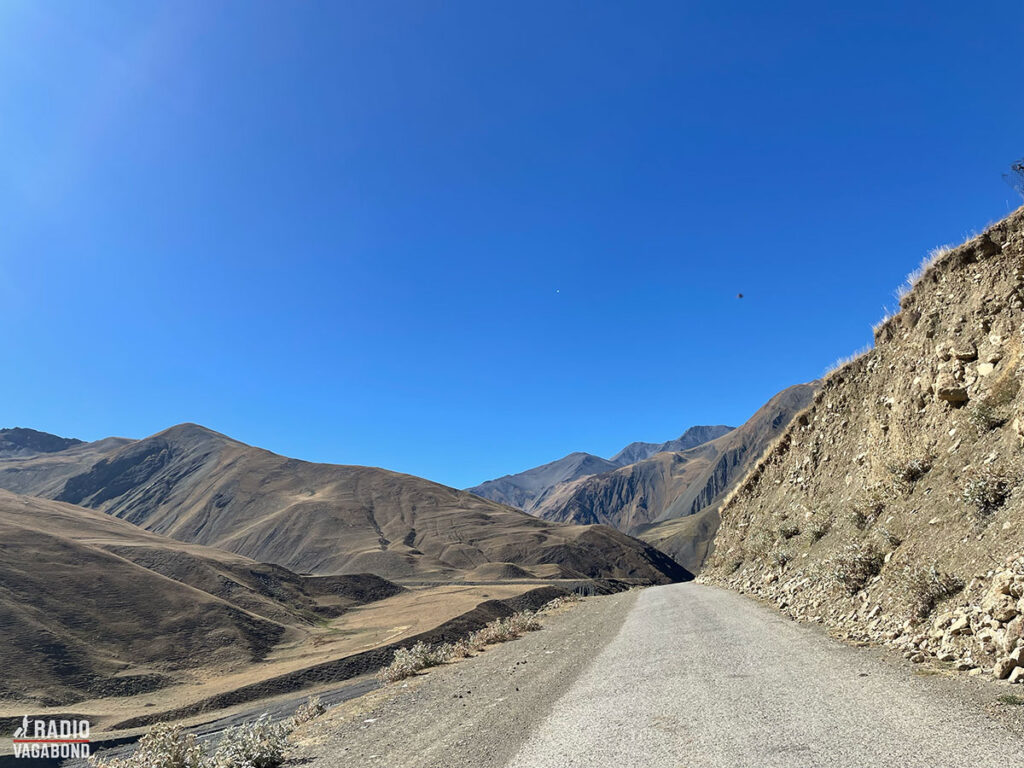
Lunch in a Small Village
We stop in a small mountain village for lunch, where we find a cosy little spot run by an older couple. They don’t speak English, but the food is fresh and affordable. For just $3, we get a filling meal and a large bottle of Coke. It’s not every day you get such value for money!
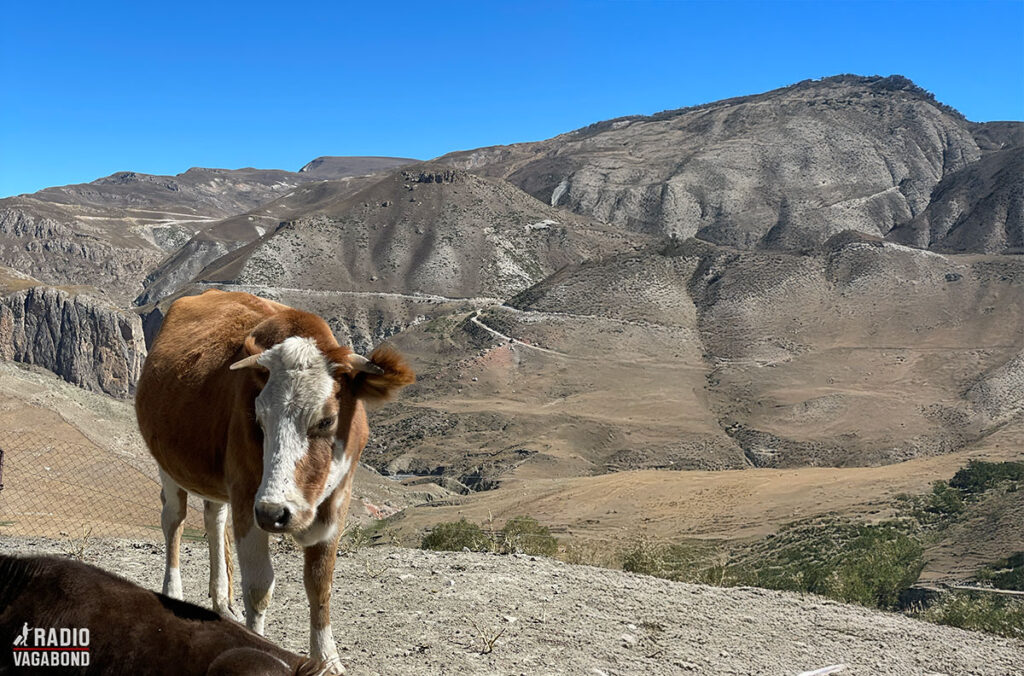
After lunch, we continue on to Quba, a city at the base of the Shahdag Mountain, which will serve as our base for the next two days. Quba is a charming town with a population of around 40,000 people, and we’re staying in a brand-new apartment – so new, in fact, that I had the honor of removing the plastic wrap from the TV. It’s the perfect place to rest up for more mountain adventures.
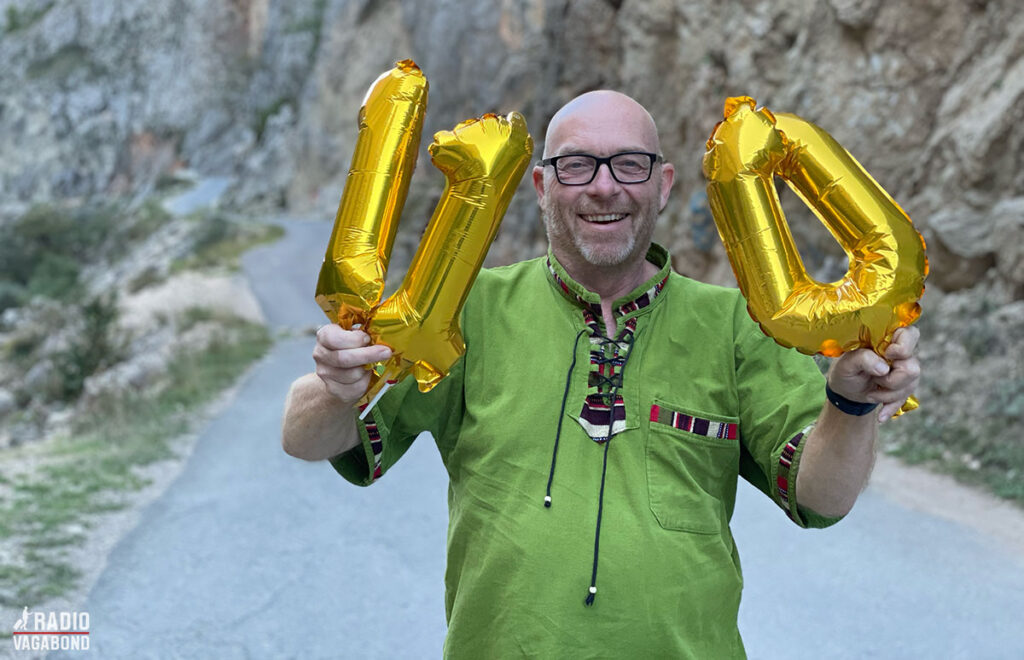
WHO ARE YOU?
Please spend five minutes taking a the survey – tell me a bit about who you are and what you would like more or less on here on The Radio Vagabond.
A Journey Through History in Khinaliq
The next day, we set off for Khinaliq, a village that feels like a trip back in time. Located high up in the Caucasus Mountains, it’s one of the oldest continuously inhabited places in the world, with a history spanning more than 5,000 years. The stone houses stacked on the mountainside offer jaw-dropping views, and at over 2,300 meters above sea level, it truly feels like we’ve reached the top of the world.
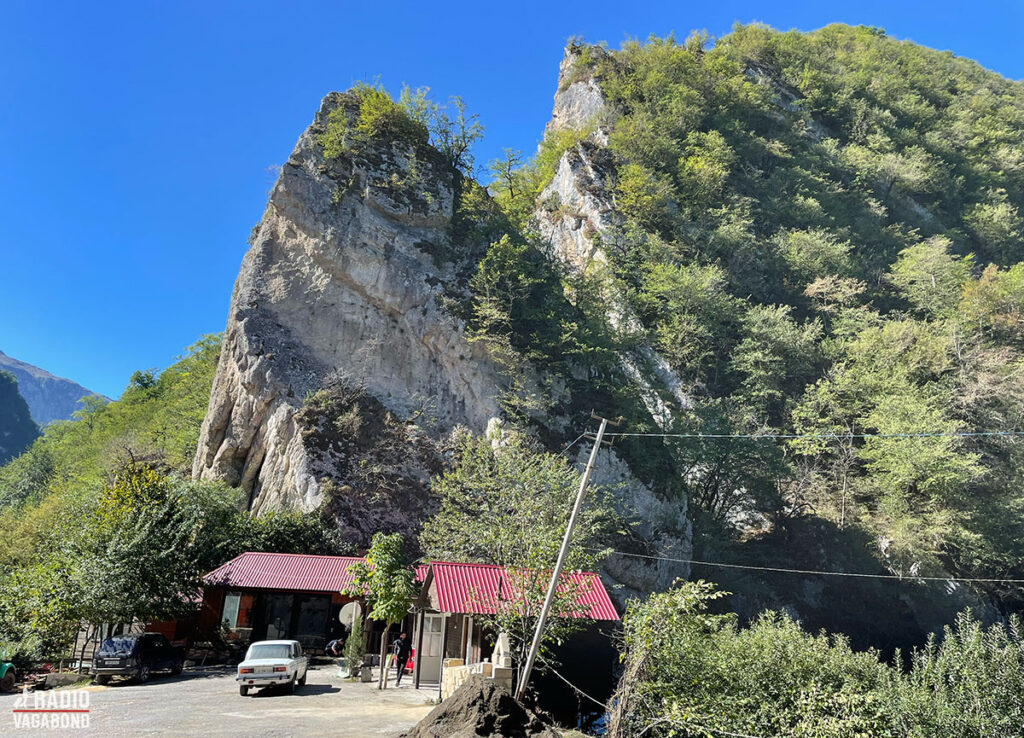
Running on Fumes
But even in such an ancient place, we encounter a modern problem – we’re running low on gas. After searching for a gas station with no luck, we resort to asking the locals for help. In a scene straight out of a movie, a friendly man uses a makeshift hose to siphon gas into our tank, saving us from being stranded in the mountains. The cost? Surprisingly reasonable, and we’re back on the road in no time.
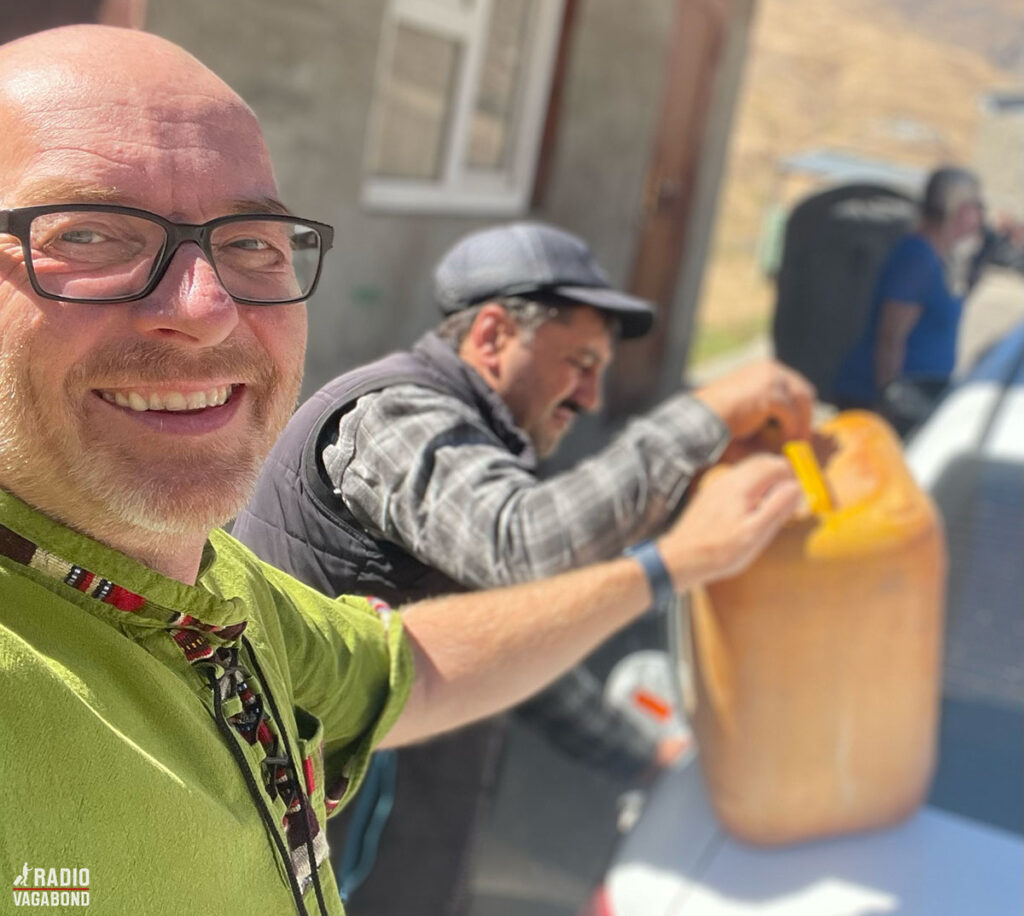
LAW & ORDER
Crime Rate
Azerbaijan has a low crime rate, especially compared to many Western countries. Violent crime is rare. Most incidents are petty theft, like pickpocketing or scams, often in tourist areas. Baku, the capital, is considered safe for both locals and visitors, but as in any city, it’s good to stay alert, especially at night or in busy places.
Safety
Azerbaijan is safe for travelers, with very few reports of violent crime. Baku has a strong police presence, which helps make the city feel secure. The roads and general infrastructure have also improved, making it easier to travel around. However, avoid the Nagorno-Karabakh conflict zone, where tensions with Armenia remain high. This area isn’t safe for visitors.
Corruption
Corruption is a known issue in Azerbaijan. It affects various areas like business and law enforcement. According to Transparency International, a global organization focused on fighting corruption and promoting transparency in governments and institutions, Azerbaijan ranks low on the Corruption Perceptions Index, meaning bribery can be a problem in institutions like the police or courts. While travellers usually won’t face this directly, it’s something to be aware of, especially if dealing with legal or bureaucratic matters.
An Accident on Our Last Night
Back in Baku on our last night, we decided to visit the Heydar Aliyev Center – that stunning building with smooth curves that almost looks like a wave. We’d already admired it from the outside, and since it was nearby, we figured we’d take a closer look. The sun was setting, and as we crossed a fairly busy road, I walked ahead while Cynthia was a few steps behind.
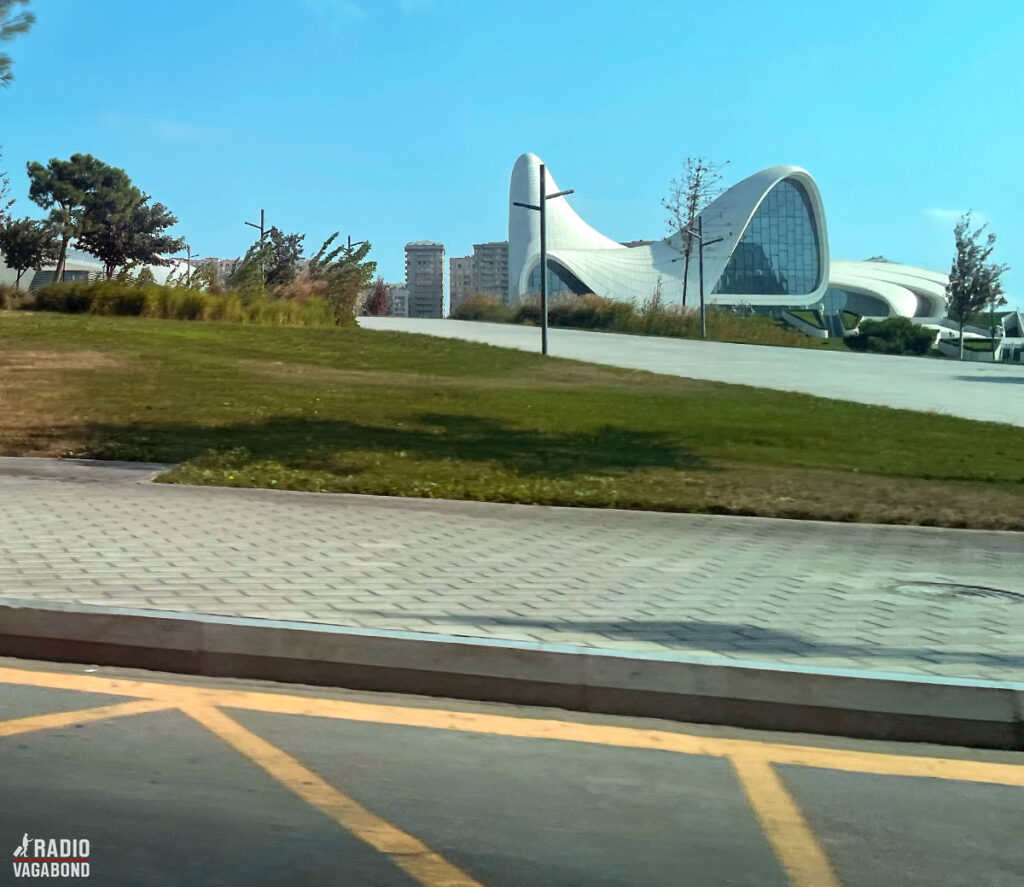
Just as she stepped forward, a car reversed right into her, not hard, but enough to knock her down. I heard her shout and turned around to see her on the ground, clutching her arm. The driver, who was an Uber driver, got out, apologizing profusely. Cynthia had landed awkwardly on her right arm, and it didn’t look good.
A Short Long Drive to the Hospital
The driver quickly offered to take us to the hospital, and we accepted. What followed was an agonizingly slow 45-minute drive through Baku’s rush hour, and when we finally arrived, we found out the hospital didn’t have an emergency room. So, we had to drive another half-hour to a different one. By this point, I noticed blood on her sleeve, but I didn’t say anything to avoid making her more anxious.
When we finally got to the right hospital, they cut her sleeve and exposed the injury – her hand was completely out of its socket, and the bone had pierced through the skin. Even though hours had passed, the driver was still with us, visibly shaken and feeling awful about what had happened. He stayed by our side, worried about what this might mean for him.
Thank You Google Translate
Speaking to the Police
Things got even more stressful when the police showed up. They began questioning me with the help of Google Translate, which was an incredibly frustrating process. Fortunately, I called a local friend, Seva, who arrived to help translate. Her presence made things much easier, but the hospital was chaotic, with children running around while the doctor tried to work on Cynthia.
Eventually, the doctor reset her hand, popping it back into place and applying a cast. The driver covered the hospital bill, and we finally headed back to our Airbnb – relieved but exhausted.
”Get out of the country now!”
We had tickets to Georgia the next morning, but things got more complicated when the police sent a message asking us to come to the station. Seva’s attorney friend advised us to get out of the country immediately, warning that the police might try to extort money from Cynthia, despite her being the victim.
So, that’s exactly what we did – fleeing Azerbaijan to avoid a bigger mess. Once in Tbilisi, our first mission was to find a proper hospital to ensure Cynthia’s arm got the care it needed. But that’s a story for another day.This trip has been full of twists and turns – quite literally – but it’s been an unforgettable adventure in a country that most people couldn’t place on a map. From the stunning landscapes of the Caucasus Mountains to the warmth of local hospitality, Azerbaijan has proven itself to be a hidden gem.
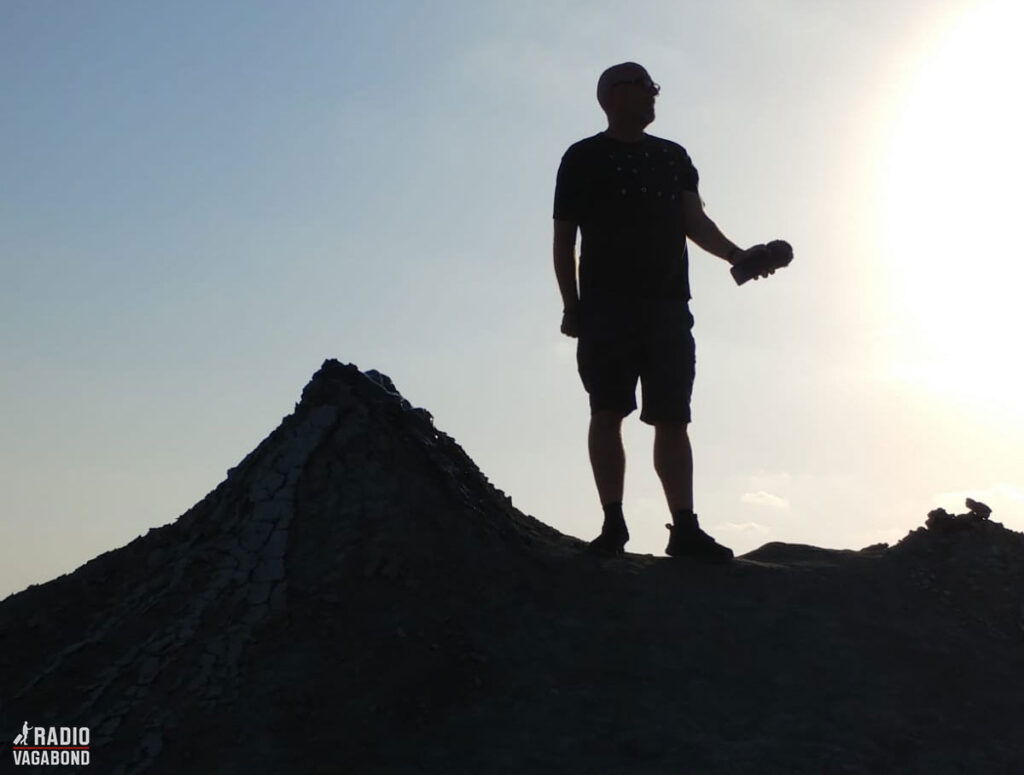
Stay tuned for the next episode of The Radio Vagabond, where we’ll dive deeper into our experiences in Georgia.
My name is Palle Bo, and I gotta keep moving!
JEG VIL GERNE HØRE FRA DIG
Fortæl mig hvor er du, og hvad du laver lige nu, mens du lytter til denne episode. Du kan enten sende mig en email på lytter@radiovagabond.dk eller udfylde formularen her på Radiovagabond.dk.
Eller sende en stemmebesked ved at klikke på banneret herunder.
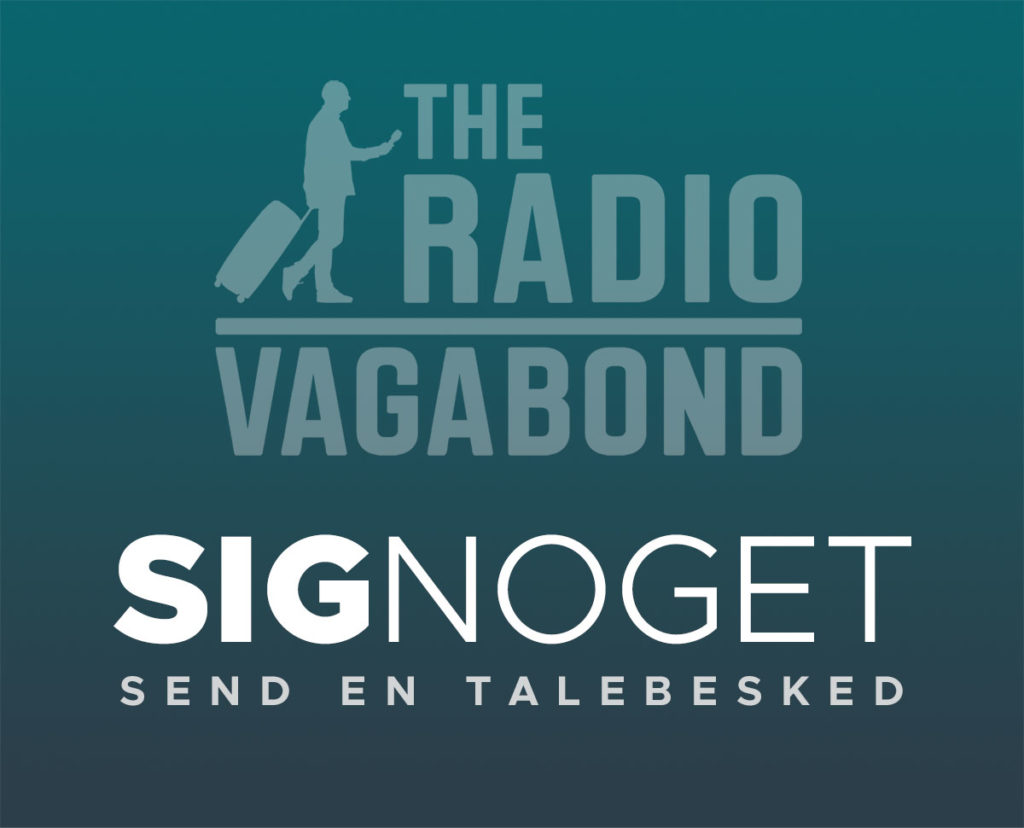
Uanset hvad du gør, vil jeg meget gerne høre fra dig. Det er altid sjovt at høre, hvem der sidder ude på den anden side af højttaleren.
DEL MED EN VEN
Har du en ven, der også er interesseret i at rejse og få inspiration til at komme ud og opleve verden? Så del denne episode. Send en besked eller ta’ telefonen og fortæl om den. Du kan også bare klikke på en af de farvestrålende knapper herunder.
SPONSOR
Som altid tak til min sponsor, Hotels25.dk. Det er et sted, du altid kan finde de bedste priser på overnatning rundt omkring i verden. Og det er garanteret den bedste pris.
RADIOGURU
Radiovagabond er produceret af Radioguru, som også kan hjælpe dig med at starte din egen podcast.
